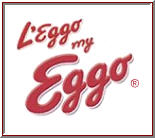
Some very funny seminarians!
[youtube https://www.youtube.com/watch?v=lvVylnHnn9s&hl=]
Now for those of us who have never studied koine (myself included), some explanations make this little video a whole lot more fun:
 Koine was the Greek language spoken and written in the Hellenistic and Roman periods, and it’s the language in which the New Testament scriptures were originally written.
Koine was the Greek language spoken and written in the Hellenistic and Roman periods, and it’s the language in which the New Testament scriptures were originally written.
Exegetical means of or pertaining to critical interpretation of a text.
En arche en ho logos, kai ho logos eh pros ton theon, kai theon en ho logos is John 1:1 in koine.
 ti legeis en koine means literally, “What do you say in koine?”
ti legeis en koine means literally, “What do you say in koine?”
Donald A. (D. A.) Carson, Daniel Wallace, and William D. Mounce (mentioned in the rap sequence) are prominent New Testament scholars. I wonder if any of these gentlemen ever thought they would some day be rapped about?
And finally, the whole “l’eggo my eggo” thing, explained by the man himself…
Scott Yoshikawa (Ph.D. in New Testament at Trinity Evangelical Divinity School under D. A. Carson), teaches Greek at Biola University in La Mirada, CA, and is the professor who is briefly featured in the video several times.
“Legomai ego” comes from a joke I tell my 3rd semester Greek classes as a reinforcement of the Voice of the Greek verb. I ask the class, “How do you say, ‘I myself say to myself’ in Koine?” The ‘I say’ is “lego” but ‘to myself’ reflects the middle voice (reflexive), hence, “legomai” (1st singular present middle indicative). “I myself” is emphatic represented by the extra “ego” at the end. In the video I write it on the board. Class dismissed!

COMMENTS
Leave a Reply













